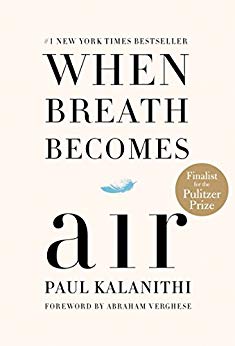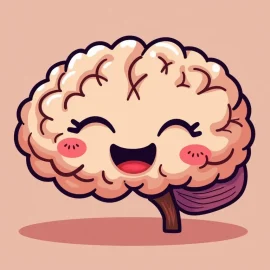

This article is an excerpt from the Shortform summary of "When Breath Becomes Air" by Dr. Paul Kalanithi. Shortform has the world's best summaries of books you should be reading.
Like this article? Sign up for a free trial here .
What is the book When Breath Becomes Air by Paul Kalanithi about? How does it address life, death, and dying?
Paul Kalanithi’s memoir is about his personal journey of discovery as much as it is a dissertation on what it means to live and die. Paul’s book about dying is unique because it is also a book about doctors; but in it, he shows that he believed that human relationships and experiences gave life purpose and depth, and he strove to celebrate both in his life and the life of his patients. The legacy Paul left behind exemplifies the strength and wisdom possible in accepting the inevitability of death and living despite it.
Shortform note: This article and our summary of When Breath Becomes Air is written in a way that allows you to share in the experience provided by the memoir.
Simply reading about the content of the story seems insufficient in expressing the emotional journey. To really provide you with the sensation this book creates, we wrote in the first person, using a voice similar to his. We highly recommend reading the original book for the full experience. Reading the words coming directly from him is a powerful experience we can’t replace.
Early Thoughts and Beliefs about Life and Death
Shortform note: Paul loved literature and majored in it at Stanford. He also received a Masters degree. However, Paul was fascinated with the moral study of life and death, and studied several life and death books, though of course he never anticipated that he’d write a book about dying, or a book about doctors’ role in finding the meaning of life. Paul’s journey to understanding his own feelings on life and death and books, including later writing a book about dying, helped frame his philosophy about his own life after his diagnosis.
While my friends headed east to become artists, I was still pondering the intersectionality of biology with literature, morality, and philosophy. I wasn’t sure what the future held for me. Then, one day, I had a sort of divine epiphany—only by being a doctor could I come to learn the answers to my questions. As Whitman had stated, the physician is the only one who can truly discover the physiological-spiritual man. Despite my misgivings as a young man, I was going to become a doctor.
This choice wasn’t an easy one to make. It would require another year of school to get the proper credits just to apply, as well as an 18-month application process. I would also have to turn away from literature. But in doing so, I could start to seek answers from a relationship with those facing life and death.
Some professors felt that leaving academia was a hasty decision. They suggested I use the time I had to study the history and philosophy of science. I was accepted into a program at Cambridge University and headed off to England.
There’s no way to truly capture the essence of what dissecting your first cadaver is like. Every medical student must traverse through this choppy terrain between life and science. In front of you lies a human that once housed a mind, meaning, breath, and dreams. Yet, at the same time, you see a mere specimen that you will carve up over a period of months to further your educational agenda. The pendulum swings between disgust and misconduct and inspiration and excitement. Eventually, the humanity is drained from you until all that is left is the cold, hard, pitiless face of knowledge and proficiency.
For me, anchored in a pursuit of morality and meaning, this dichotomy was difficult. I found I would often inflate the morose details of anatomy work to friends so I could feign emotion, despite the antithetical reality of how I felt in class.
Still, at times, I couldn’t help but remember that this mass of muscles, cells, and organs had once been a life, even if that remembering was only an admission of disregard. All doctors must draw this line between life and science. The invasion of the body and individuality, the things that are sacred to humans, is what practicing medicine is all about. Thus, the body becomes a mere tool and human suffering the mode of operation. Anatomy class was the vessel that changed us from empathic souls to hardened professionals.
Then, one day, I sliced into my donor, as we were instructed to call them, opening the chest in a way not instructed so I could more easily access other organs. The proctor was beside himself, not because I had performed the procedure incorrectly, but because I had done it without batting an eye. The horror and sorrow in his expression was the most significant lesson I’d learned thus far in my medical training.
Everything changed after the news of a friend’s death reached me. I’d known Laurie in medical school. She’d made it through surgery after being hit by a car but died the next day. I didn’t ask any questions or for any particulars about her case. The time when a car accident was just a car accident was gone. A car accident now conjured all the pictures I had in my head of procedures, processes, and possible injuries that would lead to death. I had all the information I needed as a doctor to understand Laurie’s death. I understood it as I would any other patient.
Each moment that I had failed to recognize the patients I saw as people, as priorities, as suffering individuals worthy of empathy and focused care, flooded my mind. I had moved through patients’ pain, worries, and diagnoses like a worker on a factory line. I felt crushing guilt. I had failed to recognize the significance of the situation and their lives. I was turning into Tolstoy’s cliche of a doctor: mechanically treating disease without noticing the individual.
Human relationality was once of great importance to me, but I had forgotten it amid the harried world of diagnosis and prognosis. It wasn’t sufficient to just be an excellent surgeon. I had to be an excellent physician, which meant guiding those in my care, including families, to a place where tragedy can be comprehended.
Paul’s Diagnosis and Reframing the Future
Shortform note: Paul was taken off guard by his diagnosis. On his journey, he started to write a book about dying, though he didn’t have a number for how long he might have left. The resulting book is a moving book about a doctor trying to write a book about dying from his own unique perspective and wisdom.
I’d spent so much of my training learning to account for patients’ identities in my surgical decisions. Yet, in that familiar hospital room, now as a patient, with Lucy next to me, I could feel my identity, that of physician, slipping away. She and I both knew what my scans showed. Cancer lived inside me, had found a number of cozy corners to nestle into. The life I’d been working toward, the role I was going to play in the world, was disappearing.
I’d counseled a number of patients, guided them through the dark so they could see their new futures. But in that instance, I was no longer the guide. I was aimless, lost and unable to find a new path or even see what that new path should look like. My lung cancer diagnosis didn’t sharpen my view on life. It blinded me to life.
Death, which I had turned from a foe into a sometimes necessary associate, no longer waited at my side with deference. Death now sat across from me, and I didn’t know how to address it anymore. I didn’t know how to find the words with which to negotiate. It was as if I was being introduced to death for the first time, and the code of conduct was still unknown.
I couldn’t fall back on a prognosis to tell me whether I should work or cherish what I had left. I couldn’t use it to decide whether or not to have a child. As a doctor, the statistics helped me formulate a clear picture for my patients, but for me, the picture was fuzzy. I would have to look death in the eye and determine what was important to me, what gave my life meaning, and find a way to try to live that life in whatever way I could.
Without my medical training to guide me, I returned to my first love for answers: literature. Wanting to be physically involved in the chasm between life and death had pulled me from my pursuit of language to explain it. But now, in wanting to understand what death meant in my life and how it defined who I was meant to be, I returned to language. I sought that same vocabulary I had sought as a younger man.
Literature became my lifeline. My actions had become framed within the confines of how they related to death. But language had a power to supersede that meaning. The relentless uncertainty about what I should be doing ceased one day when the words of Samuel Beckett overshadowed my fears. I started the day suffering, the pain so bad I couldn’t fathom any possibility for action beyond getting up. I thought, “I can’t go on.” Just as quickly, though, Beckett’s words finished the thought, “I’ll go on.” I faced the day, one step at a time, repeating, “I can’t go on. I’ll go on.”
Everything became clear in that moment. Although I was dying, I wasn’t dead yet. I was still living, and the only person I knew how to be among the living was me. And who I was was a surgeon. I would find a way to be that person again, whatever that looked like now, until death said for certain I couldn’t anymore.
Posthumous Publication
Shortform note: Paul’s wife, Lucy, made sure that the book lived up to Paul’s legacy. Below, she details some of the things she hopes Paul left behind, including the book about dying that serves to examine the meaning of life.
Although Paul’s manuscript was not complete when he died, Lucy sees the correlation with his unfinished life. The book, like Paul, did not get the time it deserved.
Like the final year of Paul’s life, this book carries a sense of urgency. There was a desire to communicate everything he’d learned as a doctor and patient about life, death, and meaning under a ticking clock counting down the minutes until he could say no more. He couldn’t help people as a doctor anymore, but he still wanted to guide them through that threshold he’d helped so many walk through.
As he’d done for most of his life, his writing examines mortality and what it means to live with meaning. He wanted to face his mortality with grace, and he wanted to help others do the same.
Both Lucy and Paul recognized that his cancer saved their marriage. It brought them closer together, each wanting to secure a positive future for the other. Paul’s family was also a source of strength, supporting them through his treatments and their decision to have a child. Their lives were filled with love, and despite the sorrow, Lucy knows they were lucky for what they had.
Paul’s ability to meet death and accept it allowed him to have courage and integrity throughout his illness. Rather than fighting against reality or praying for a Hail Mary, he mourned the life he knew was out of reach and did his best to recreate something else in its place. Even when the illness was breaking his body down, his spirit was never broken. He sought meaning in what was left of his life.
That Paul is the one Lucy misses—the man who never gave up and who never stopped living.
Lucy knows that if Paul had survived, he would have contributed greatly to his field and medicine as a whole. Whenever she sees the hospital where he worked, where their daughter was born, and where he died, she thinks of all the people he would have helped. But in writing this book, she knows he will still contribute, still help, in a way that is uniquely Paul.
Shortform note: Paul Kalanithi’s book about dying and the meaning of life gave him purpose in his final days. Paul does not lament on his loss, but instead consistently reframes how he sees the meaning of life- even as he write a book about dying. In Paul’s writing, the book is also a book about doctors and their role as gatekeepers in life and death. The book, published posthumously in 2016, was a bestseller.

———End of Preview———
Like what you just read? Read the rest of the world's best summary of Dr. Paul Kalanithi's "When Breath Becomes Air" at Shortform .
Here's what you'll find in our full When Breath Becomes Air summary :
- How Paul Kalanithi discovered he had cancer
- How Paul coped with his cancer until his very end
- How Paul's wife dealt with his death and found the strength to continue






